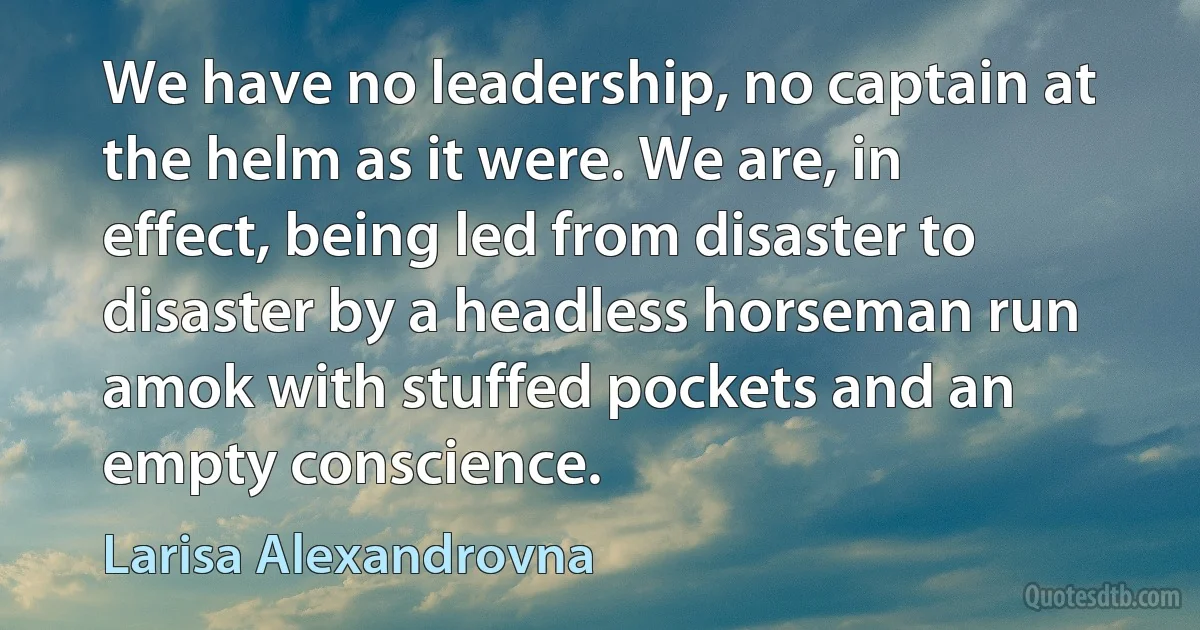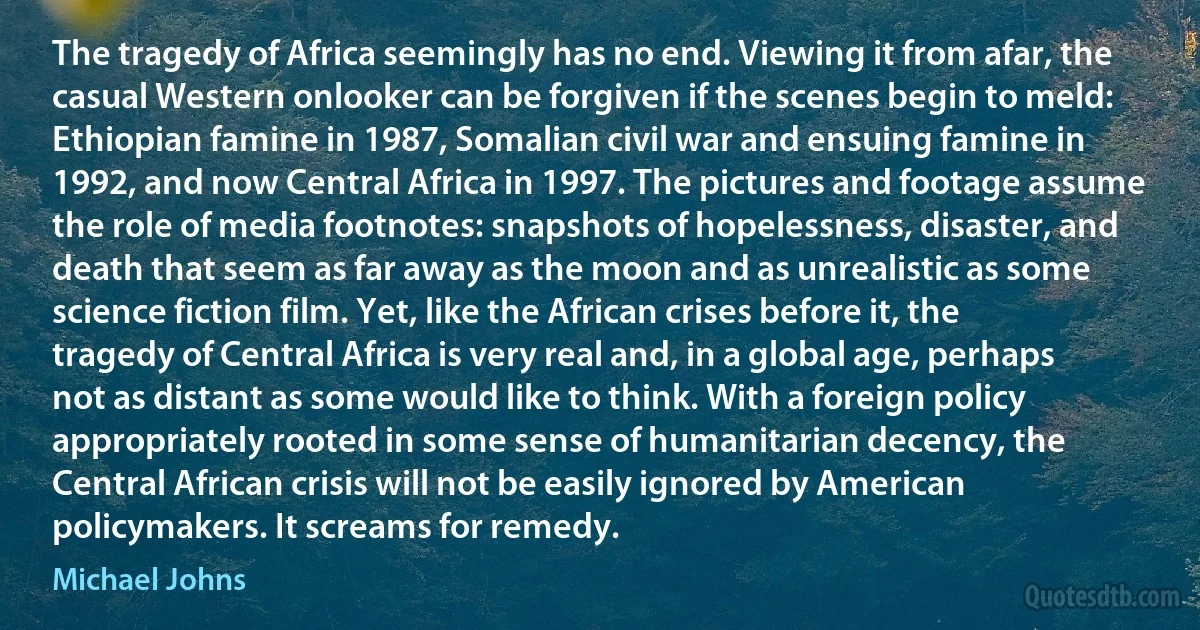Disaster Quotes - page 25
More and more I am coming to the conviction that Roe vs. Wade, in the guise of a great victory, has been in some respects a disaster for feminism. We might be better off today if it had never happened, and we had had to continue a state-by-state political fight. Roe vs. Wade resulted in a lot of women declaring victory and going home. In the meantime we have been losing abortion rights on the ground, both in terms of access and funding and on the ideological and psychological levels.

Ellen Willis
The launch of PSLV-C24, with IRNSS-1B marks an important landmark in our space programme and demonstrates, yet again, India's capabilities in space launch technology. The nation will immensely benefit from the applications of IRNSS which include terrestrial, aerial and marine navigation, disaster management, vehicle tracking and fleet management etc.

Pranab Mukherjee
As a Christian, I feel morally obligated to assist others who are less fortunate. Following the Old Testament laws of tzedakah (charity and tithing), I believe that my responsibility begins with my immediate family and expands in successive rings to supporting my immediate neighborhood and church, to my community, and beyond, as resources allow. My philosophy is to give until it hurts in times of disaster.

James Wesley Rawles
Disaster is rarely as pervasive as it seems from recorded accounts. The fact of being on the record makes it appear continuous and ubiquitous whereas it is more likely to have been sporadic both in time and place. Besides, persistence of the normal is usually greater than the effect of the disturbance, as we know from our own times. After absorbing the news of today, one expects to face a world consisting entirely of strikes, crimes, power failures, broken water mains, stalled trains, school shutdowns, muggers, drug addicts, neo-Nazis, and rapists. The fact is that one can come home in the evening-on a lucky day-without having encountered more than one or two of these phenomena. This has led me to formulate Tuchman's Law, as follows: "The fact of being reported multiplies the apparent extent of any deplorable development by five- to tenfold"

Barbara Tuchman
Well, despite what many gay "marriage” activists say, having two mummies or two daddies does not replace God's design of one mum and one dad. God designed marriage-for one man and one woman-from the very beginning and blessed this union and said, "Be fruitful and multiply” (Genesis 1:28). This is God's design for the family! And since God is the all-wise, all-knowing Creator, what He designed is obviously the only true way for us, not what sinful, fallible human beings try to make. Of course, no family is perfect-we live in a fallen world that is groaning from sin-but we are not at liberty to change the design for marriage and family that was given to us by our Creator. When we do, disaster is around the corner. I encourage you to be bold in standing on God's Word and refusing to compromise with man's ideas about what a marriage or a family should look like. We need to unashamedly uphold the design given to us by our Creator.

Ken Ham
As I see it, all questions regarding the factual accuracy of Biblical statements-notably such ‘miraculous' events as Virgin Birth, Resurrection, etc.-are wholly irrelevant to the true issues. Indeed, I should go so far as to say myself that the whole value of the Gospel story to mankind-and it is very great-lies not in its historical but in its legendary, mythical, or ‘typical' character. It is not, I think, the Sermon on the Mount-or at least not this alone-that constitutes the peculiar contribution of Christianity to human thought, for very similar maxims are to be found elsewhere, and in any event could be deduced from first principles. It is to be found, rather, in the affirmation that all that is best and highest in man, as typified in the person of Jesus, is bound to arouse opposition, is often persecuted and apparently destroyed-yet is in fact indestructible and does perennially ‘rise again', triumphant over seeming disaster.

Leslie Weatherhead
But, in the late twentieth century, it became more important to many leftists to save "Third World” culture, no matter how barbaric, from "neo-colonialism,” than to support equality and democracy. People on the left would defend brutal dictators (Castro, Mao, Pol Pot, Khomeini, et al.) simply because they opposed "Western imperialism.” As a result, all politics that were derived, no matter how loosely, from Marxism, lost credibility, and finally died in 1989. This was naturally a disaster for communists and socialists, but also for social democrats, for they had lost an ideological basis for their idealism. And, without idealism, politics becomes a form of accounting, a management of purely material interests.

Ian Buruma
A man's house burns down. The smoking wreckage represents only a ruined home that was dear through years of use and pleasant associations. By and by, as the days and weeks go on, first he misses this, then that, then the other thing. And when he casts about for it he finds that it was in that house. Always it is an essential -- there was but one of its kind. It cannot be replaced. It was in that house. It is irrevocably lost. It will be years before the tale of lost essentials is complete, and not till then can he truly know the magnitude of his disaster.

Mark Twain



